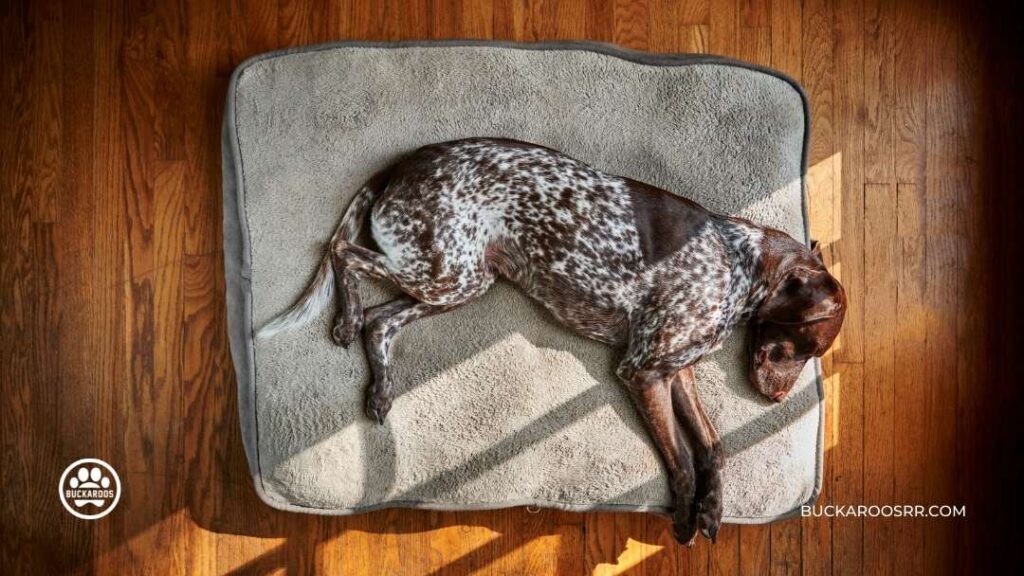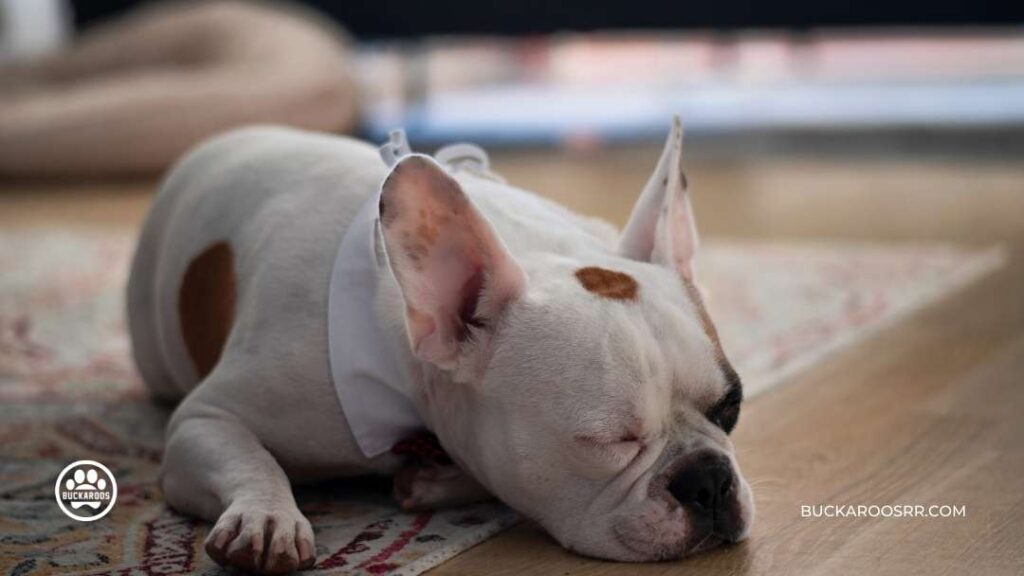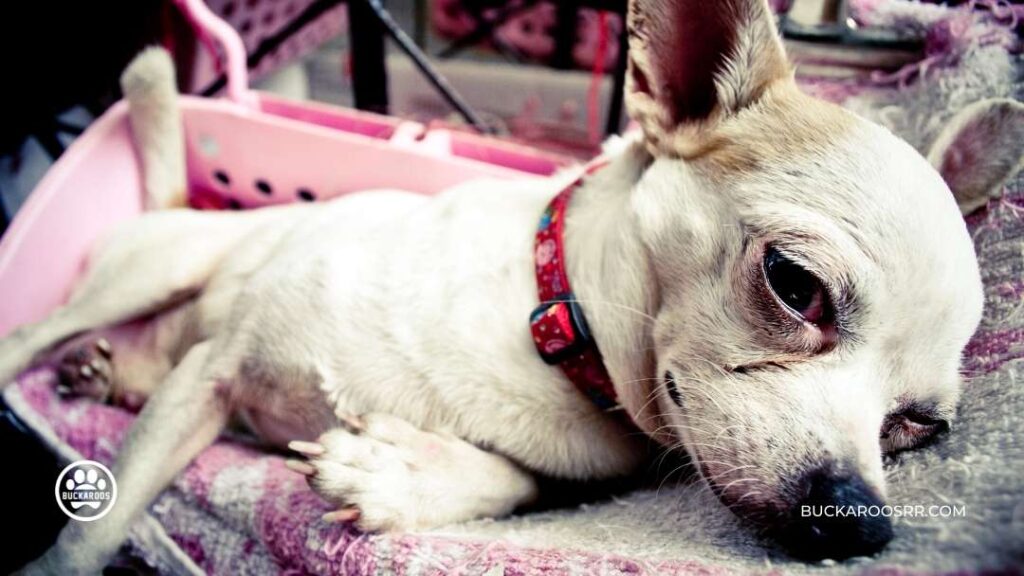If your dog has parvo, you should be able to recognize the symptoms and seek professional medical help as soon as possible. Dogs are one of the most popular pet animals in the world, and like any other pet, dogs can have health issues that could impact their well-being. As a dog owner, the last thing you want your beloved is to contract Parvo. Dog owners have a lot to lose if their dog has Parvo, so it’s essential to take care of them on an ongoing basis.

How To Know If Your Dog Has Parvo?
Canine Parvovirus, also called CPV, is a virus that explicitly affects dogs who come into contact with it. A few vital signs may help you diagnose if your dog has Parvo. When a dog becomes infected with CPV, the virus invades the cells in the dog’s gut, which then causes the intestinal cells to die and shed. This leads to vomiting, diarrhea, weight loss, lethargy, and loss of appetite.
The diarrhea is watery and contains a high number of virus particles. Any vomit produced by the infected dog will also contain many virus particles. The gut lining is damaged, leading to consistent vomiting and diarrhea, which can quickly lead to dehydration in dogs, as they often don’t have the appetite or thirst to drink water when they’re nauseous.
Dogs can rapidly become weakened with parvovirus infection, and if the infection takes over the immune system, it quickly affects the blood cells and the organs leading to septic shock. If your dog shows any of these diagnostics, it’s essential to take them to their vet as soon as possible. Hence early diagnosis and treatment are essential for the best chance of recovery.

How To Treat if Your Dog has Parvo
If your veterinarian believes your puppy may have parvovirus, they will likely run a straightforward test to confirm the infection. Your veterinarian may run a blood test to inquire about the White Blood cells in the body. He will also check how much of the bone marrow is impacted. Followed by a fecal exam to analyze the intestinal parasites. If all tests return positive, then he will further conduct an internal organ blood screening test. This is to finally assess any kind of or how severely the internal organs are damaged.
Once a case of Parvo is confirmed, the only course of action is to let the virus get through and come to an end on its own. There is no particular cure for Parvo; there is only backup treatment, which is providing fluids through IV or injecting subcutaneous fluids. Some medicine to treat the vomiting to minimize dehydration. Even antibiotics to prevent other infections. If left untreated, Parvo usually leads to death.
Though the chances of survival drastically increase with the timely discovery of the disease, you should be prepared for the worst if your pet is infected with Parco. But it has been known that dogs hospitalized and given supportive care tend to recover faster than those seeking treatment at home.

How Can You Prevent Your Dog From Getting Parvo?
Parvovirus is notoriously difficult to kill, with only a handful of disinfectants effective against the virus particles. They can also survive in the environment for up to a year. Any contact with contaminated or recovering animal droppings or vomit, as well as contaminated collars, harnesses, or carriers and bedding, can lead a healthy dog to become infected with the virus. These factors make parvovirus incredibly contagious, spreading rapidly among unvaccinated dogs. In many cases, it won’t be apparent where the dog caught the parvovirus; it could have been on a walk.
You can take some measures to help prevent your dog from getting Parvo. First, always ensure their vaccinations are administered on time and are up to date. This also includes socializing with dogs that are vaccinated. We at Buckaroos 360 make sure that all our dogs are up to date on their vaccination, and for any guest dogs we take, we always ask for their vaccination records. We understand the sensitivity of the matter and the level of contagiousness this virus holds; that is why we are always careful and on our toes when such matters are involved.
Secondly, keep your dogs away from areas where other dogs may have been sick. This does not mean that you only are preventive when another dog has had Parvo – it goes for any illness. Any disease might lead to a weakened immune system in your dog, which will only increase its chances of acquiring Parvo or any other viral disease.
Finally, immediately clean up any feces from your dog and dispose of it securely and correctly so that no other animal can come into contact. Also, ensure your neighborhood is clean; pet owners follow the cleanliness routine and are particular about their dog’s doings. You never know what your pet may encounter on its next outdoor activity, which might threaten its life.
These precautions can help your dog stay healthy and away from this lethal virus.
FAQs
How quickly do dogs show signs of Parvo?
Once a dog has been infected with the parvovirus, it can take anywhere from two to seven days for clinical signs to appear. The virus’s maturation period is typically three to five days in the canine’s body. However, some dogs may show signs as early as two days after exposure, while others may not show signs for seven days or more.
How can I treat my dog at home for Parvo?
If your dog displays symptoms of Parvo, it is essential to seek professional veterinary care immediately. There are no known home remedies for Parvo disease treatment as such. Parvo can be a severe illness, so seeking professional care for your dog as early as possible is essential.
How long does a dog last with Parvo?
A dog with Parvo typically lasts around two weeks before recovering or succumbing to the virus. However, during these two weeks, the dog will usually experience a roller coaster of symptoms, with some days being much worse than others. This can make it difficult to predict precisely how long a dog will last with Parvo, as some may recover quickly while others may take longer. In general, however, most dogs will fully recover if medical help is sought at the earliest.
In Conclusion
Sadly, many unsuspecting dog owners have had their beloved pets fall ill to parvovirus without knowing what it was. Parvovirus is a highly contagious and dangerous disease that can quickly spread among dogs and puppies that are not vaccinated. The virus is spread through dog feces or other dog bodily fluids, so if you suspect your dog or puppy has been exposed to parvovirus, you should bring them to the vet immediately. Your dog will need to be isolated from other dogs in the vet’s office so that the disease does not spread to other dogs.





